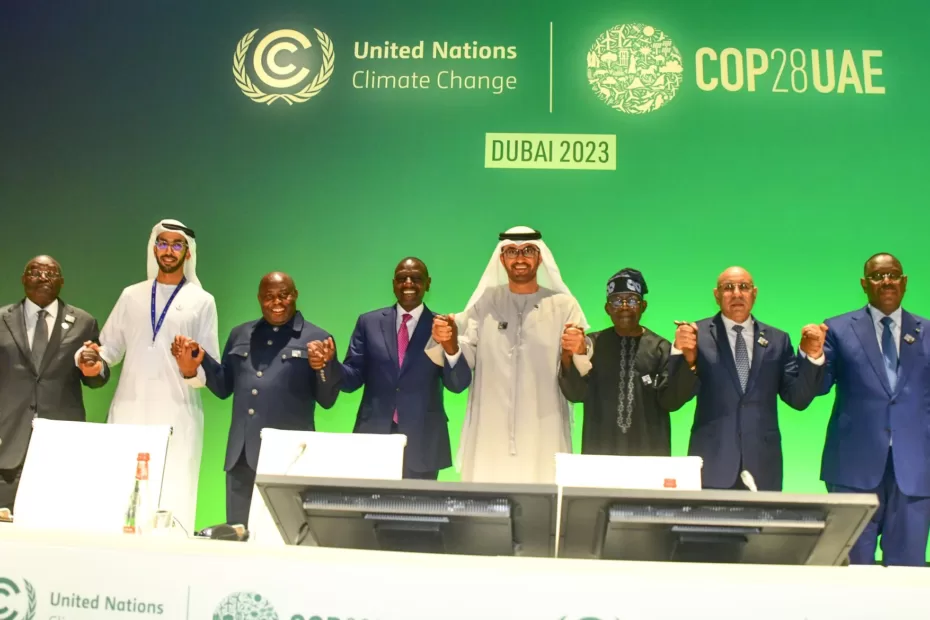Africa is set to benefit from new $420 Million Climate Fund after five countries and the EU pledged a historic new loss and damage fund that will deal with climate change.
An agreement to set up the fund was struck last year at COP27 in Egypt. This was a key outcome of an otherwise fraught summit. However, for the past year clashes have rocked the fund over its details.
Some countries have questioned the basic issues of where it should be hosted, who should pay in and who should benefit.
Africa and all developing countries are now eligible to apply for the fund. At the same time, every country is free to contribute to the fund. Payments are voluntary. Some funds will go to support least developed nations.
In a surprise move, COP28 president Sultan al-Jaber shook up the meeting by bringing the decision to the floor on day one. This marked an early success for negotiators at COP28 in Dubai.
Also Read: Africa to Spotlight Climate Finance as the World Heads to COP28
The European Union, United Kingdom, United States and others immediately announced contributions. The announced contributions totalling around $420 million for developing countries reeling from the impacts of climate change.
Likewise, the deal will provide the momentum for an ambitious wider agreement on action during the summit. Firstly, Canada will provide $16 million to tackle the impacts of the climate crisis through Loss and Damaged
At the same time, the UAE announced the landmark $30 billion ALTÉRRA climate focused investment vehicle, the largest ever, with the aim of mobilizing $250 billion of institutional and private capital into climate action by 2030.
More over, France announces €100 million commitment to Loss and Damage, helping to accelerate momentum on Day 2 of COP28 and deliver for those communities most vulnerable to climate change.
Additionally, the World Bank Group committed to increasing its climate finance target to $40 billion by 2025, with 50% to mitigation and 50% to adaptation.
How the fund will work
The funds provided will help vulnerable communities in least developed nations. This like grants and cheap loans from the public and private sectors as well as innovative sources.
The World Bank will host the fund for four years. This is despite strong resistance to its involvement from developing countries.
Africa and all developing countries particularly vulnerable to the effects of climate change will be eligible to benefit from the mechanism. However, the definition of vulnerability has become one of the thorniest issues to solve.
The availability of funds is an early win for the Cop28 hosts. The win sets the start of the conference on a positive collaborative tone, Ana Mulio Alvarez, a loss and damage expert at E3G, told Climate Home.
Likewise, several negotiators underlined the difficult compromises needed to strike a deal.
Also Read: East Africa to Champion Sustainable Climate Action
Compromise deal
Developing countries had initially opposed a role for the World Bank. They aired concerns over high costs, slow procedures and the US influence on the institution.
But they eventually relented and accepted a compromise. They gave the World Bank certain conditions attached to the involvement of the fund.

